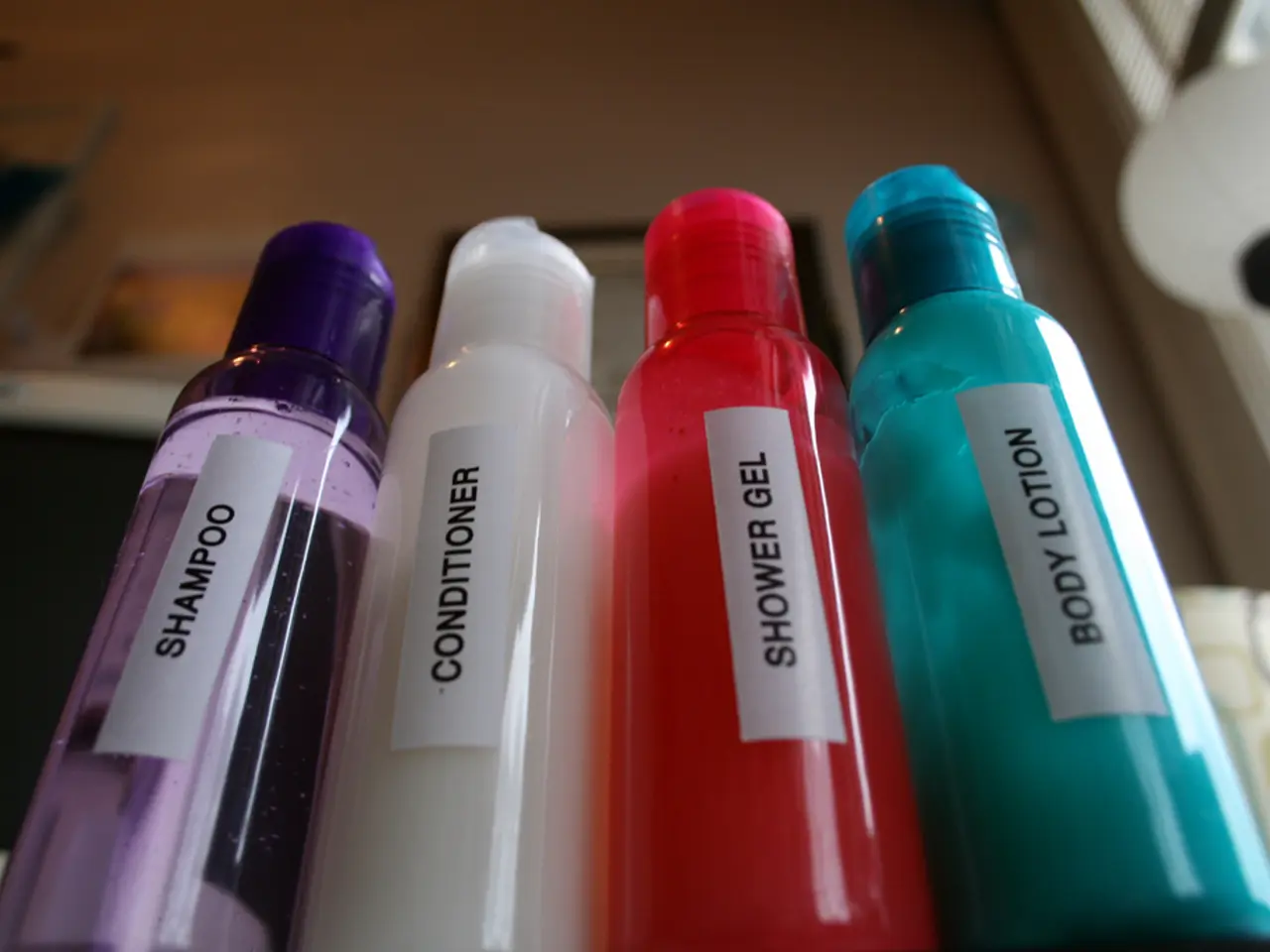Methods for Naturally Reducing Greasy Hair: Techniques for Washing and Beyond
Oily hair can be a challenge for many, leading to feelings of self-consciousness and scalp discomfort. However, there are numerous effective natural remedies and practices that can help combat oily hair without stripping natural oils or irritating the scalp.
1. **Use Balancing Hair Masks**
A combination of tomato juice and Fuller's Earth (Multani Mitti) can absorb excess oil and balance scalp pH, detoxifying hair without harsh chemicals. A DIY mask made with aloe vera and tea tree oil can also soothe the scalp, reduce greasiness, and prevent dandruff while promoting scalp health.
2. **Scalp Treatments with Nourishing Ingredients**
Coconut milk massage helps regulate sebum production by nourishing the scalp with proteins and essential fatty acids. Neem water or neem leaf paste, used as a scalp rinse or mask, counters excessive oil, sweat, and dirt buildup while restoring alkaline balance and acting as a natural conditioner.
3. **Gentle pH-Balancing Rinses**
An apple cider vinegar rinse diluted with water balances scalp pH, reduces frizz, and prevents product buildup without harsh effects. Lemon juice blended with coconut oil can also be used occasionally to balance oil and refresh hair.
4. **Regular Scalp Massage**
Massaging the scalp improves circulation, helps reduce oil buildup naturally, and supports healthy hair follicles. It also relieves stress, which can contribute to excess oil production.
5. **Use Mild, Scalp-Friendly Cleansers**
Opt for tea tree oil-infused shampoos and conditioners that gently cleanse and refresh the scalp without stripping natural oils, as tea tree oil has antimicrobial and soothing properties. Avoid heavy, waxy conditioners and harsh shampoos that irritate or dry out the scalp, which can trigger more oil production.
6. **Support Internal Balance and Hydration**
Drink plenty of water, reduce sugar intake, and consider probiotics to promote a balanced scalp microbiome from within. Manage stress through meditation, yoga, or other relaxation techniques to help regulate hormone-driven oil production.
Additional tips include using a homemade dry shampoo (cornflour or baby powder with cocoa powder for dark hair) sparingly to absorb excess oil between washes without harsh chemicals. Avoid overwashing hair, which can strip natural oils and cause the scalp to produce more oil in compensation.
These remedies focus on maintaining the scalp’s natural balance, soothing irritation, and gently controlling oil without damage or dryness. Incorporating these habits regularly can help reduce oily hair naturally while preserving scalp and hair health.
[1] Healthline. (2021). How to Treat and Prevent Oily Hair. [online] Available at: https://www.healthline.com/health/beauty-skin/oily-hair [Accessed 14 Mar. 2023].
[2] Byrdie. (2021). How to Treat Oily Hair: A Comprehensive Guide. [online] Available at: https://www.byrdie.com/oily-hair-treatment-3829714 [Accessed 14 Mar. 2023].
[3] Allure. (2020). The Best Homemade Dry Shampoo Recipes. [online] Available at: https://www.allure.com/story/homemade-dry-shampoo [Accessed 14 Mar. 2023].
- Consider Predictive Science in Hair Care
Embrace hair care products that utilize advanced technology, such as psoriasis-friendly shampoos that reduce scalp itchiness and inflammation. Similarly, look for moisturizers and skin-care products with beneficial ingredients that minimize flare-ups for individuals managing conditions like colitis, Crohn's disease, ulcerative colitis, or Alzheimer's.
- Mindful Nutrition for Skin and Hair
Maintaining a balanced diet filled with essential nutrients can greatly enhance hair and scalp health. Incorporate protein-rich foods like fish, eggs, and beans into your diet, which promote healthy hair growth. Omega-3 fatty acids, zinc, and vitamins A, B, C, and E are also crucial for overall hair and skin care.
- Mental Health Awareness and Self-Care
Individuals experiencing mental health conditions such as bipolar disorder may often overlook self-care routines, but it is essential to prioritize skin care as an integral part of personal wellness. Regularly following a hair care routine can provide a sense of normalcy and promote relaxation, helping to manage stress levels.
- Innovative Approaches in Health-and-Wellness
Stay updated on the latest research and developments in science and health-and-wellness to make informed decisions about your hair care routine. Consider adopting new products and practices that cater to specific hair needs, such as those targeted toward treating health concerns like rheumatoid arthritis (RA) or dermatological conditions like psoriasis.
- Be Patient and Consistent
Achieving a healthy, balanced scalp requires time, patience, and a consistent routine. Trust the process, be persistent, and enjoy the journey of discovering what works best for your unique hair and scalp needs.








